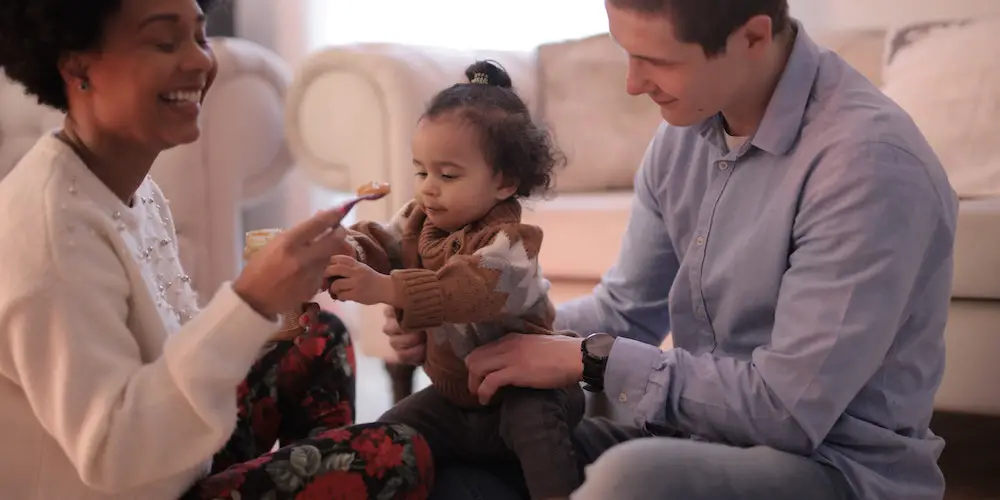Are you facing challenges on how to get closer to someone? If your answer to this question is yes, then this article is for you.

Introduction
Creating meaningful connections with others is an essential aspect of a fulfilling life.
However, intimacy issues can pose challenges for many individuals, making it difficult to form close bonds.
In this comprehensive guide, we will explore actionable steps and expert insights on how to get closer to someone, even if you have intimacy issues.
Whether you’re struggling with trust, vulnerability, or emotional barriers, these strategies will help you foster deeper relationships and enrich your social interactions.
How to Get Closer to Someone
Overcoming intimacy issues requires a combination of self-awareness, communication skills, and willingness to step out of your comfort zone.
Let’s delve into effective methods to enhance your connection with others, addressing common concerns and offering practical solutions.
1. Embrace Vulnerability for Deeper Bonds
One of the keys to getting closer to someone is being open and vulnerable.
To truly connect with others, it’s important to share your thoughts, feelings, and experiences.
While vulnerability can be intimidating, it creates an authentic and deep bond.
Start by sharing something personal with the person you want to get closer to.
This can pave the way for them to reciprocate, fostering a genuine connection built on trust.
2. Practice Active Listening
Active listening is a fundamental skill for building connections.
When engaging in a conversation, focus on the speaker without distractions.
Show genuine interest in what they’re saying and ask follow-up questions.
This not only demonstrates your attentiveness but also conveys that you value their thoughts and feelings.
Through active listening, you can gain insights into their perspective and strengthen your relationship.
3. Engage in Shared Activities
Participating in shared activities can create memorable experiences.
Identify hobbies or interests you both enjoy and engage in them together.
Whether it’s cooking, hiking, or painting, shared activities provide opportunities for bonding.
These experiences offer a chance to connect without the pressure of intimate conversations, gradually building a sense of familiarity and comfort.
4. Communicate Your Struggles
Addressing your intimacy issues openly is crucial. If you’re struggling with intimacy issues, don’t hesitate to communicate them to the person you want to get closer to.
Sharing your challenges can foster understanding and empathy. It’s likely that they have their own insecurities as well.
By discussing your struggles, you create a supportive environment for growth and connection.
5. Prioritize Quality Time
Spending quality time together strengthens connections.
Allocate time for one-on-one interactions that allow for deeper conversations.
Whether it’s a cozy dinner, a walk in the park, or a heartfelt conversation over coffee, these moments provide a platform to share thoughts, aspirations, and feelings.
Quality time nurtures emotional intimacy and brings you closer.
6. Challenge Negative Thought Patterns
Intimacy issues can stem from negative thought patterns.
Identify any self-limiting beliefs that are hindering your ability to connect.
Are you assuming the worst or fearing rejection?
Challenge these thoughts by considering alternative perspectives.
Replace them with more positive and realistic beliefs that empower you to engage in meaningful relationships.
7. Learn From Past Experiences
Reflect on your past relationships to gain insights.
Previous experiences offer valuable lessons. Analyze what worked and what didn’t in your past relationships.
Did certain behaviors contribute to distance? Did specific actions foster closeness?
Use these insights to make informed choices and avoid repeating patterns that hinder connection.
8. Foster Mutual Trust
Trust forms the foundation of any strong relationship.
Building trust takes time, but it’s essential for deepening connections.
Be consistent in your actions, keep promises, and show reliability.
Trust is earned through transparency and reliability.
As trust grows, so does the sense of closeness and emotional intimacy.
9. Seek Professional Guidance
Therapy can provide effective tools for overcoming intimacy issues.
If your intimacy issues are deeply ingrained, seeking the guidance of a professional therapist can be transformative.
Therapy offers a safe space to explore underlying causes, develop coping strategies, and practice healthier relationship behaviors.
A therapist can provide tailored guidance to help you navigate your journey toward deeper connections.
10. Embrace Self-Compassion
Practicing self-compassion is vital for healthy relationships.
Be kind to yourself and acknowledge that everyone has vulnerabilities.
Treat yourself with the same compassion and understanding you would offer to a friend.
This self-acceptance can create a solid foundation for connecting with others, as you learn to extend empathy and understanding to both yourself and them.
Conclusion
Navigating intimacy issues may seem challenging, but with dedication and the right approach, you can create deeper connections with others.
By embracing vulnerability, practicing active listening, and seeking professional support when needed, you can overcome barriers and foster meaningful relationships.
Remember that every step you take toward connection is a step toward personal growth and enriched interactions.
Frequently Asked Questions
Can intimacy issues be overcome?
Yes, with self-awareness, effort, and the right strategies, intimacy issues can be overcome. It’s important to be patient and committed to personal growth.
Is it necessary to share deep emotions to get closer to someone?
Sharing deep emotions can foster intimacy, but it’s essential to do so at a comfortable pace. Start with smaller disclosures and gradually work toward more significant conversations.
How can shared activities strengthen a bond?
Engaging in shared activities provides a shared experience that creates positive memories. This shared history enhances your connection and gives you common topics to discuss.
What if the other person is also struggling with intimacy issues?
Open communication is key. If both individuals are open about their challenges, it can create a supportive environment for growth and understanding.
Can therapy truly help with intimacy issues?
Yes, therapy can provide valuable tools and insights for addressing intimacy issues. A trained therapist can guide you toward healthier relationship patterns.
Is vulnerability a sign of weakness?
No, vulnerability is a sign of courage and authenticity. It takes strength to open up and share your true self with others.



